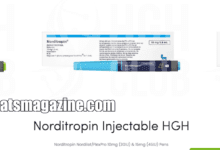One of the significant benefits of more innovative medication management is improved medication adherence. By utilizing digital solutions, patients can receive personalized reminders, educational resources, and progress tracking, empowering them to take an active role in their healthcare.
With the help of mobile apps such as My Medadvisor or wearable devices, patients can monitor their medication intake, record side effects, and communicate with healthcare professionals. This level of engagement fosters better adherence, leading to improved health outcomes and reduced hospitalizations. A more thoughtful way to manage medications promotes seamless collaboration and communication among healthcare providers, patients, and caregivers.
Moreover, these platforms enable easy access to medication histories, allergies, and other relevant information, improving care coordination across providers and healthcare settings. This blog post will explore the benefits and innovative methods transforming how we manage medications.
In this article
The Challenges of Traditional Medication Management
Traditional medication management methods often involve manual processes that are susceptible to errors. Patients may struggle with remembering dosage instructions, adhering to complex medication schedules, or experiencing adverse drug interactions.
It can be overwhelming for individuals to keep track of multiple medications, especially if they have chronic conditions or complex treatment plans. Furthermore, a lack of clear and concise communication between healthcare providers and patients can lead to misunderstandings and potential medication errors.
Healthcare providers also face challenges maintaining accurate medication records, monitoring patient adherence, and preventing medication errors. The reliance on paper-based systems or fragmented electronic records can hinder the efficient exchange of information between different healthcare settings.
This can result in delays in receiving essential medication updates, duplication of tests, and potential drug interactions. The time-consuming nature of manual record-keeping can also divert healthcare professionals’ attention from direct patient care, leading to reduced efficiency and an increased workload.
These challenges highlight the need for a smarter and more efficient approach to medication management. Addressing these issues can improve patient safety, enhance healthcare efficiency, and promote better health outcomes for individuals managing complex medication regimens.
Digital Solutions Revolutionizing Medication Management
Digital solutions are transforming medication management by leveraging the power of technology to enhance efficiency, accuracy, and patient safety. Mobile applications and web-based platforms provide users with features like medication reminders, dosage tracking, and drug interaction alerts.
These tools enable patients to set reminders for taking their medications, receive notifications for refills, and access comprehensive medication information. Furthermore, healthcare providers can utilize electronic health records (EHRs) and computerized physician order entry (CPOE) systems to streamline medication prescribing, reduce errors, and improve communication across healthcare settings.
Medication Adherence and Patient Empowerment
One of the significant benefits of smarter medication management is improved medication adherence. By utilizing digital solutions, patients can receive personalized reminders, educational resources, and progress tracking, empowering them to take an active role in their healthcare.
With the help of mobile apps or wearable devices, patients can monitor their medication intake, record side effects, and communicate with healthcare professionals. This level of engagement fosters better adherence, leading to improved health outcomes and reduced hospitalizations.
Enhanced Healthcare Collaboration and Communication
A more brilliant way to manage medications promotes seamless collaboration and communication among healthcare providers, patients, and caregivers. Digital platforms facilitate secure messaging, allowing patients to contact their healthcare team with questions or concerns.
Likewise, healthcare providers can share vital information about medication changes or updates, reducing the chances of misunderstandings or medication errors. Moreover, these platforms enable easy access to medication histories, allergies, and other relevant information, improving care coordination across providers and healthcare settings.
Conclusion
Embracing smarter medication management through digital solutions offers numerous advantages in today’s healthcare landscape. By utilizing mobile apps, web-based platforms, and electronic health records, patients and healthcare providers can optimize medication adherence, reduce errors, and enhance patient safety. This digital revolution empowers patients, promotes effective collaboration among healthcare professionals, and ultimately improves healthcare outcomes. As technology advances, we can expect even more innovative solutions to revolutionize medication management further, making it simpler, safer, and more accessible for all.











